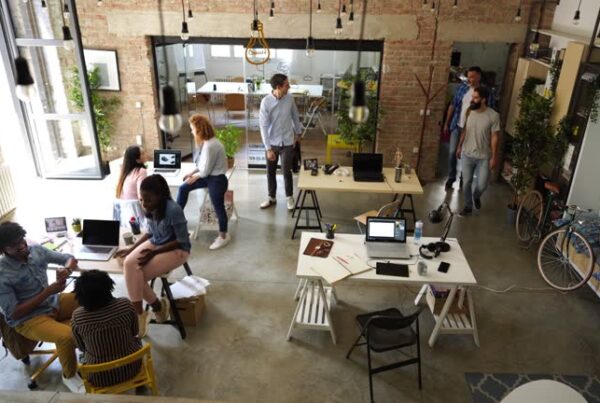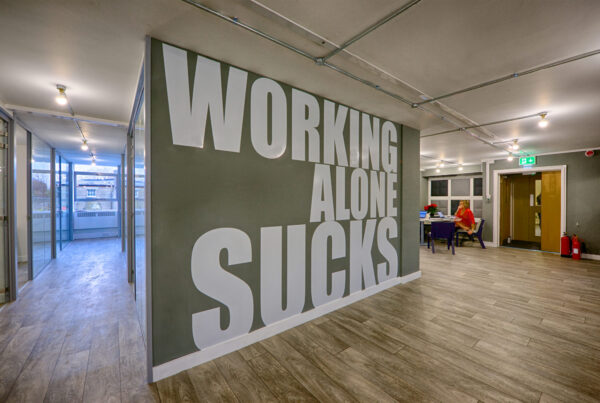How will be work in 2024?
The ongoing debate on the future of work has become a battleground of opinions, with some declaring the demise of traditional offices while behemoths like Amazon and Meta mandate a return to the physical workspace. Figures like Elon Musk have waged wars against remote work, yet it seems they may be tilting at windmills, akin to modern-day Don Quixotes. In this unfolding saga, one thing becomes clear: the future of work lies in a harmonious blend of remote and office-based endeavors.
As we peer into the workplace landscape of 2024, questions arise about the role of offices and the emergence of coworking spaces. To gain insights into these dynamics, we sat down with Amogh Mogre, the custodian of customer success at zapfloor, a startup situated on the 4th floor of Brain Embassy, developing innovative workspace optimization software like the Brain Embassy app.
Empowering Employees to Steer the Course
In the United States, urban areas witness the haunting emptiness of abandoned office buildings, prompting economists to caution about a potential ‘office crisis’ precipitating a financial downturn. Amogh, however, believes Belgium may not witness such a rapid transformation. Nevertheless, he notes a paradigm shift in the way companies operate, recognizing that traditional fixed-seat headquarters no longer align with employee preferences.
A new breed of employees values flexibility over conventional pay raises, discarding the antiquated 9-to-5 routine and daily commutes. Tools like zapfloor’s are instrumental as employees leverage them to synchronize their office presence with favored colleagues, booking spaces accordingly.
Corporate Giants Embrace Coworking
The realm of coworking spaces is no longer confined to freelancers and startups; it has expanded its appeal to SMEs and corporate giants. Amogh asserts that the allure of coworking transcends mere cost-cutting; it fosters creativity and productivity. Corporates now find themselves attracted to the dynamic environment where private offices coexist with shared spaces, facilitating encounters with diverse individuals and companies.
The coworking experience goes beyond professional spaces; it encapsulates events, ping pong contests, and a vibrant atmosphere that entices professionals. According to a business.com survey, 45 percent of respondents reported improved mental health, while nearly half witnessed enhancements in skills and work quality due to coworking environments.
“The offering at the coworking place makes it easier to convince people to come to the office. They come for the events or the ping pong contests, and they stay to do their work.”
Technology: Humanizing the Workplace
Contrary to claims that technology alienates humanity, Amogh contends that it enhances interactions and collaborations, fostering a more humanized office environment. Technology’s dual role in task automation and data-driven insights empowers coworking spaces to understand their members better. With operational tasks handled by technology, coworking spaces can devote time to nurturing their communities.
Moreover, technology aids office owners in addressing environmental concerns, aligning with the contemporary focus on reducing carbon emissions. Smart tools enable the measurement and reduction of ecological footprints, meeting the expectations of employees who look to their employers to contribute to the fight against climate change.
Ecosystems of Collaboration
Observing trends across Europe, Amogh recognizes that coworking communities have evolved into dynamic business ecosystems. Members, spanning diverse professions like IT, housekeeping, copywriting, and graphic design, engage in reciprocal exchanges of services. The proximity of coworkers facilitates spontaneous collaborations, turning casual coffee machine encounters into business partnerships. Seasoned coworking members often transition into roles as coaches or mentors for their peers, enriching the collaborative spirit within these thriving ecosystems.





